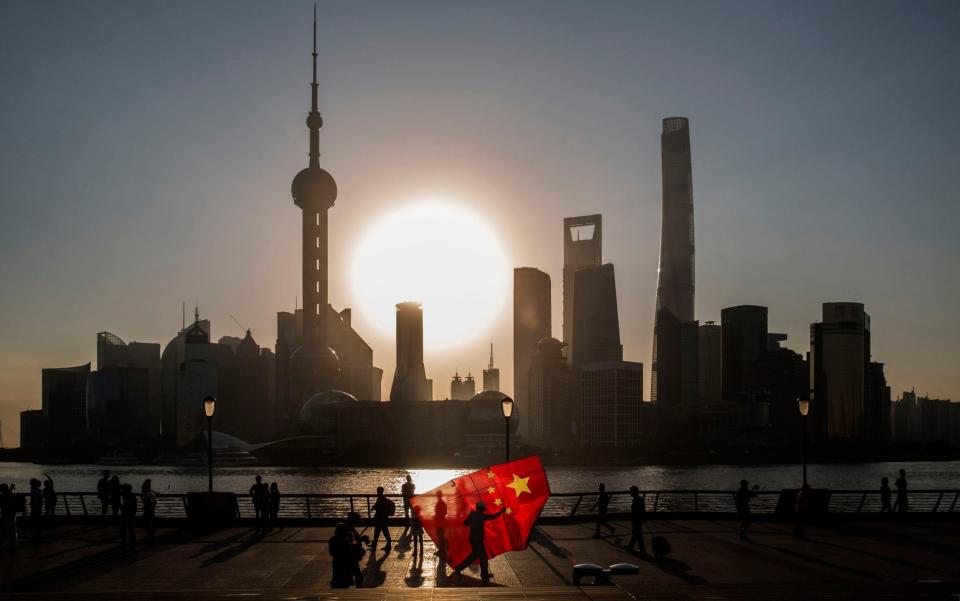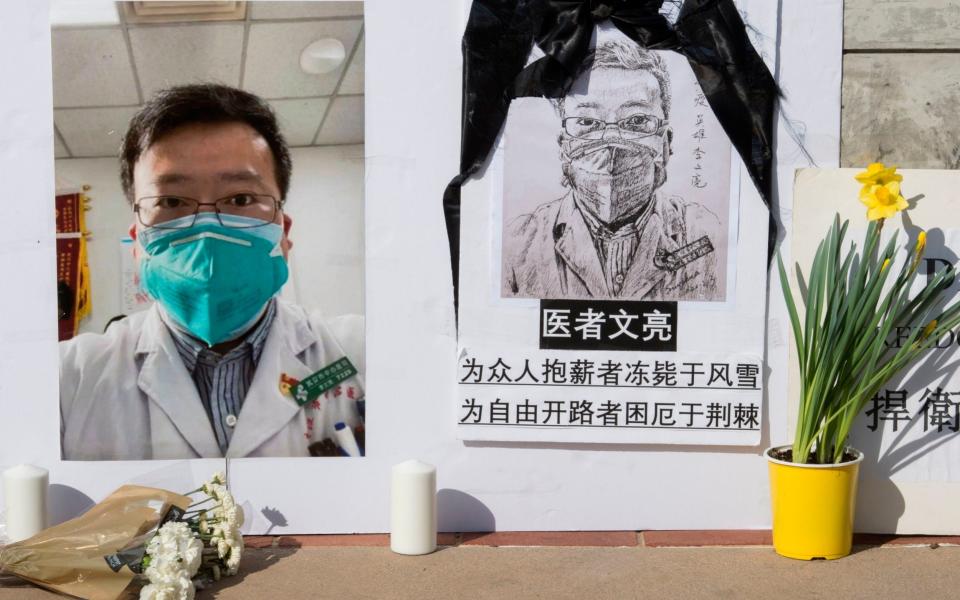Britain walks a tightrope in opening trade talks with China

Anger brewing in the UK over China’s handling of the coronavirus pandemic could affect how a post-Brexit trade deal gets hammered out with Beijing.
A growing chorus of influential voices is urging a rethink of bilateral relations, with some saying China’s suppression of information exacerbated the outbreak.
Last month foreign secretary Dominic Raab called for a “deep dive” into China’s handling of the coronavirus, saying: “We can’t have business as usual after this crisis.”
A new group has been formed to examine the UK’s China policy, and Ken McCallum, who has recently taken the reins at MI5, has signalled that China will be a key focus.
“This implies that Britain is likely to choose a path in which it engages closely with China, via a complex cat-and-mouse relationship structure based on less than complete trust,” says Kitty Smyth, founder of Jingpinou, a UK consultancy specialising in China.

But as coronavirus winds down, the UK will need to find ways to boost economic growth – even if that means traversing difficult political territory by tapping China.
Experts say pursuing a trade agreement between the UK, the world’s sixth-largest economy, and China, the second-largest, is a natural step.
“Both China and the UK not only should do this, but must do this,” says Xiankun Lu, a former senior trade diplomat in China and a member of the UK Trade Policy Observatory.
China is already the UK’s fifth-largest trading partner, but there is room to grow. In 2018, China accounted for only 4pc of UK exports and 7pc of imports, with a total trade volume of £68bn – not much for such vast economies.
Politically, a deal with the UK would be a win for China, after years of being sidelined from a trade tie-up with the EU.
China is interested in further leveraging the UK’s financial network to support its Belt and Road initiative, a $1 trillion infrastructure investment plan to boost Beijing’s global clout.
Xi Jinping, leader of the ruling Communist Party, said China stood “ready” to engage on trade in his first phone conversation with Prime Minister Boris Johnson in February.
This backdrop provides an advantage that trade experts say the UK should not squander, especially as a trade deal with Beijing will be different to China’s previous agreements, which were about securing preferential access to key resources.
“At a very broad level, it’s about China finding and securing a diplomatic and political ally in a first division Western country”, especially as relations deteriorate with other Western nations, says Smyth.
The UK will need to be diplomatic, and not, like the US, strong-arm Beijing into concessions perceived as “unfair and unbalanced”, says Song Hong, a trade expert at the Chinese Academy of Social Sciences, a government think tank.
Experts say China will promote goods where it has an edge – textiles, steel products and electronics – possibly phasing out tariffs over as many as 20 years, as it has done in past tie-ups.
But Beijing will be wary of importing goods where the UK is dominant – high-tech machinery and equipment, chemical products – as it ramps up advanced manufacturing to prevent relying on imports.
Negotiations also provide a window to rebalance UK exports towards its strength in services.
“The UK economy is 80pc services and 20pc goods, but our exports to China are 80pc goods and 20pc services, so it’s kind of an exact flip,” says Steven Lynch, managing director of the British Chamber of Commerce in China. ”There’s so much potential growth.”
Britain could promote its creative industries – advertising, film production, architecture – as well as greater access for financial and professional services.
China, though, has always been very protective of its services industries, wary of allowing foreign players in key areas, such as banking and insurance. It only recently loosened its grip in some sectors, including legal services, construction, environment and entertainment.
In 2015, China signed a free trade agreement (FTA) with South Korea, opening up some areas for the first time, such as financial services, telecommunications and e-commerce.
The agreement allowed Korean law firms with branches in the Shanghai free trade zone to incorporate with Chinese law firms, and permitted Korean companies to own up to 49pc of a Chinese entertainment business.
“The UK should be bold to ask for this,” says Lu, as tailored measures now would set the stage for further liberalisation. “China should be bold to offer as much as it can.”
China will be keen to promote soft-power exports, such as language and culture, possibly by seeking provisions to allow personnel – martial arts instructors, Chinese chefs, Mandarin tutors, traditional medicine doctors – to move freely across borders, as it did in its 2015 FTA with Australia.
Beijing may also lobby for smoother investments by suggesting an exemption threshold for assessing tie-ups. Australia, for instance, agreed to review private Chinese investments in some sectors only if they surpassed A$1bn (£534m).
Chinese investment has drawn scrutiny globally because of national security and foreign influence concerns, including in the UK. Two main issues have been Huawei’s role in building 5G networks and a Chinese state-owned energy company’s backing of the Hinkley Point nuclear power plant.
A priority in Sino-British relations could be to strike a deal with Hong Kong, given the special territory’s free and open markets, an existing £22bn trade relationship with the UK, and historical ties as a former colony.
“The UK and Hong Kong are both major financial centres of the world,” says Edward Yau, Hong Kong’s secretary for commerce and economic development. “That might be an area to discuss and give assurances about opening the markets.”
A deal could include improved access for related professional services, such as arbitration and mediation, and recognition of licences and qualifications.
Hong Kong is also keen to continue as a conduit between mainland China and the world, while cementing “business certainty against this backdrop of a standstill in the multilateral trading process [and] increasing protectionism across the globe”, says Yau.
A UK-Hong Kong deal would also support smaller British businesses looking for a “landing pad in the region”, according to Andrew Seaton, executive director of the British Chamber of Commerce in Hong Kong.
Beijing will be looking closely at how talks progress with the EU and US, while considering its relationships with both, examining details such as the tariff structure and regulatory setup between the UK and the EU.
Steven McGuire, of the University of Sussex and a member of the UKTPO, strikes a note of caution. While Beijing is interested, there isn’t “any particular rush on the part of China to do a deal”, he says. “We’re not high priority, the Chinese are dealing with the Americans, and a third problem is the Americans want to sell many of the same things that we do.”
One major risk is if the US, in trade talks with the UK, pushes for what Lu dubs a “poison clause”, first included in the 2018 trade agreement Washington struck with Canada and Mexico, which forbids members from making deals with non-market economies.
The language targets China, where the government subsidises state-owned firms – a practice the US says gives companies an unfair advantage. Such a clause would make it difficult for the British government to sign a deal with Beijing.
“Britain has hundreds of trade deals to figure out, but the three major ones are the EU, US and China,” said Smyth. “It’s quite extraordinary, quite historical, that it’s going to do all of these at the precise moment global political allegiances are being realigned.”
